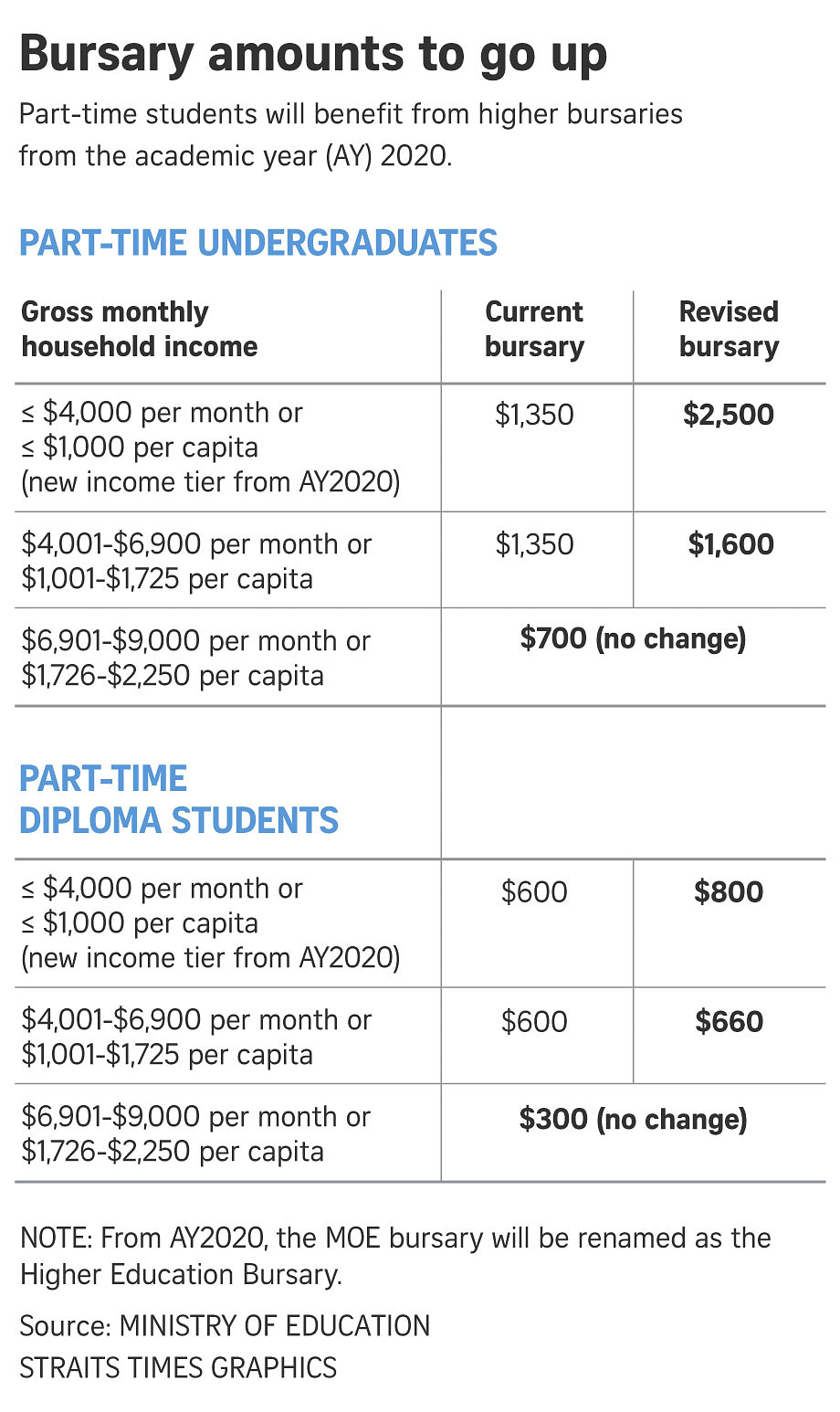Part-time university, polytechnic students on bursaries to pay lower tuition fees from next year
Sign up now: Get tips on how to help your child succeed

A photo taken on Dec 4, 2019, shows students in Singapore Polytechnic. The Ministry of Education said about 2,100 Singaporean part-time undergraduates and diploma students are expected to benefit from increased bursaries next year.
ST PHOTO: KELVIN CHNG
SINGAPORE - Part-time students in universities and polytechnics on bursaries will pay lower tuition fees from next year, just like their peers studying full time, with higher bursaries to kick in from next year.
In particular, those in the bottom-income group - whose gross monthly household income is $4,000 or less, or monthly household income per capita is $1,000 or less - will get more financial support.
The Ministry of Education (MOE) said in a statement on Tuesday (Dec 17) that about 2,100 Singaporean part-time undergraduates and diploma students are expected to benefit from increased bursaries next year, with the Government investing $2.8 million per year for part-time students, up from the current $1.8 million. About 1,900 part-time students get bursaries now.
Part-time undergraduates in the lower-income group earning $4,000 or less will receive $2,500 annually in bursaries, up from $1,350 previously, while part-time diploma students will get $800 instead of $600.
Part-time university students from the next tier of families - whose gross monthly household income is $4,001 to $6,900 - will get $1,600 in yearly bursaries. Those in polytechnic will get $660.
This is also an increase from the current bursary amounts of $1,350 and $600 respectively.
Part-time undergraduates and diploma students whose gross monthly household income is $6,901 to $9,000 will continue to receive yearly bursaries of $700 and $300 respectively.
The bursary for part-timers will also be known as the Higher Education Bursary from next year "to better reflect its intended purpose", said the MOE.
The aim is to "enhance the affordability of higher education for part-time students studying at publicly funded post-secondary education institutions", it added.

There are currently about 19,000 part-time students in polytechnics and universities.
The average part-time fees are $900 and $4,500 for diploma and degree courses respectively.
The higher bursaries will see part-time diploma students from the lowest income group pay $100 a year, down from the current $300, while part-time degree students from the same tier will pay $2,000 a year, compared to $3,150 now.
New and existing Singaporean students enrolled in publicly-funded part-time courses at all five polytechnics and the autonomous universities that offer such programmes are eligible for the financial support.
These are the National University of Singapore, Nanyang Technological University and the Singapore University of Social Sciences, as well as Nanyang Polytechnic, Ngee Ann Polytechnic, Republic Polytechnic, Singapore Polytechnic and Temasek Polytechnic.
Students at the National Institute of Early Childhood Development, set up by the MOE, will also benefit.
The greater support for part-time students comes after the MOE announced in August significant bursary hikes for full-time students pursuing higher education, as more students from lower-income households are making it to polytechnics and universities.
All in, around 21,000 undergraduates and 33,000 polytechnic students are expected to benefit from the bursaries, as government spending on bursaries increase by $44 million per year, from $123 million currently.


